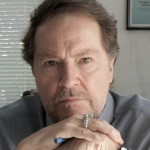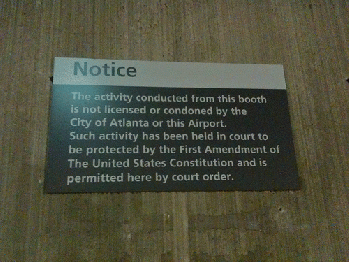there is any principle of the Constitution that more imperatively calls for attachment than any other, it is the principle of free thought -- not free thought for those who agree with us but freedom for the thought that we hate."-- Supreme Court Justice Oliver Wendell Holmes
James Madison, the father of the Constitution, was very clear about the fact that he wrote the First Amendment to protect the minority against the majority.
What Madison meant by minority is "offensive speech."
Unfortunately, we don't honor that principle as much as we should today. In fact, we seem to be witnessing a politically correct philosophy at play, one shared by both the extreme left and the extreme right, which aims to stifle all expression that doesn't fit within their parameters of what they consider to be "acceptable" speech.
As a result, we have seen the caging of free speech in recent years, through the use of so-called "free-speech zones" on college campuses and at political events, the requirement of speech permits in parks and community gatherings, and the policing of online forums.
Instead of encouraging people to debate issues and air their views, by muzzling free speech, we are contributing to a growing underclass of Americans who are being told that they can't take part in American public life unless they "fit in."
This attempt to stifle certain forms of speech is where we go wrong.
As always, knowledge is key.
The following Constitutional Q&A, available in more detail at The Rutherford Institute (www.rutherford.org), is a good starting point.
Q: PROTEST?
A: The First Amendment prohibits the government from "abridging the freedom of speech, or of the press; or the right of the people peaceably to assemble, and to petition the government for a redress of grievances." Protesting is an exercise of these constitutional rights because it involves speaking out, by individual people or those assembled in groups, about matters of public interest and concern.
Q: WHERE AM I ALLOWED TO PROTEST?
A: The right to protest generally extends to public places that are owned and controlled by the government, although not all government-owned property is available for exercising speech and assembly rights. Places historically associated with the free exercise of expressive activities, such as streets, sidewalks and parks, are traditional public forums and the government's power to limit speech and assembly in those places is very limited. However, expression and assembly in traditional public forums may be limited by reasonable time, place and manner regulations. Examples of reasonable regulations include restrictions on the volume of sound produced by the activity or a prohibition on impeding vehicle and pedestrian traffic.
Q: CAN MY FREE SPEECH BE RESTRICTED BECAUSE OF WHAT I SAY, EVEN IF IT IS CONTROVERSIAL?
A: No, the First Amendment protects speech even if most people would find it offensive, hurtful or hateful. Speech generally cannot be banned based upon its content or viewpoint because it is not up to the government to determine what can and cannot be said. A bedrock principle of the First Amendment is that the government may not prohibit expression of an idea because society finds it offensive or disagreeable. Also, protest speech also cannot be banned because of a fear that others may react violently to the speech. Demonstrators cannot be punished or forbidden from speaking because they might offend a hostile mob. The Supreme Court has held that a "heckler's veto" has no place in First Amendment law.
(Note: You can view every article as one long page if you sign up as an Advocate Member, or higher).






